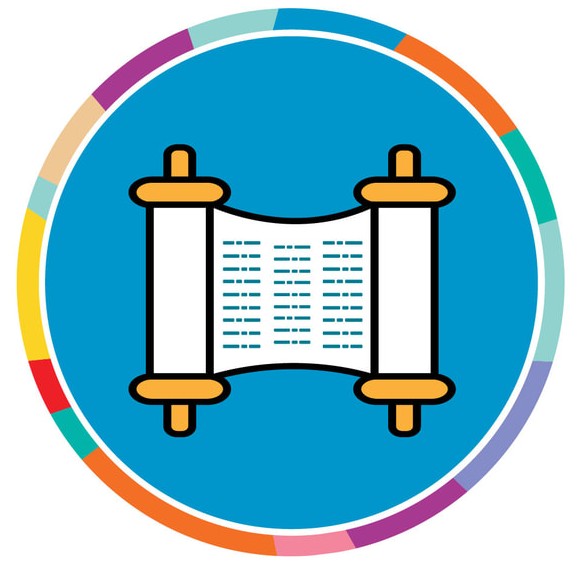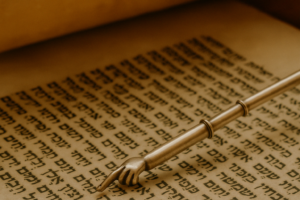 Tips for Learning Hebrew for a Bar/Bat Mitzvah
Tips for Learning Hebrew for a Bar/Bat Mitzvah
Preparing for a Bar or Bat Mitzvah is a momentous time in a young person’s life. One of the most important aspects of this spiritual journey is learning Hebrew, the sacred language of the Torah. Whether your child is fluent or just starting out, there are proven techniques to make this process smoother, more enjoyable, and spiritually meaningful.
Here at Ceremonies.pro, we guide families every step of the way. In this article, we’ll explore the most effective tips for learning Hebrew for a Bar/Bat Mitzvah.
Why Hebrew Matters in a Bar/Bat Mitzvah
The Torah reading is one of the key components of the Bar/Bat Mitzvah ceremony. Learning Hebrew allows the child to read or chant directly from the Torah scroll using the traditional trope (cantillation marks). More importantly, it connects them to thousands of years of Jewish heritage, texts, and spirituality.
1. Start Early and Practice Consistently
Hebrew is a phonetic language, and like any language, it takes time to absorb. Starting the learning process early allows for low-pressure, incremental progress.
Tips:
Set aside 10–20 minutes daily for Hebrew practice.
Make it part of a daily or weekly family ritual.
Track progress visually with a calendar or checklist.
💡 Consistency over intensity is the golden rule.
2. Focus on the Aleph-Bet First
Before tackling Torah verses or trope, make sure your child is comfortable with the Hebrew alphabet. Mastery of letter recognition and pronunciation is foundational.
Best methods:
Aleph-Bet flashcards
Alphabet songs (YouTube or apps)
Interactive Hebrew alphabet games
Once confident with letters, add nikkud (vowels) for full word reading.
3. Use Bar/Bat Mitzvah Hebrew Learning Apps
Modern tools make Hebrew learning more accessible than ever. Use interactive platforms to practice Hebrew reading, trope, and vocabulary.
Top Apps:
Duolingo Hebrew – Great for vocabulary and phrases
Alef Bet Quest – Fun intro to letters and reading
PocketTorah – Hear your child’s Torah portion chanted verse by verse
TropeTrainer – Teaches cantillation with guided repetition
4. Work With a Hebrew Tutor
A dedicated tutor can help your child personalize their learning journey. Tutors provide structure, help with pronunciation, and correct errors early on.
At Ceremonies.pro, we offer expert Hebrew reading instruction.
5. Read Torah With Understanding
Learning the sounds of Hebrew is important, but understanding the meaning of the words deepens the experience. Don’t just “sound out” the portion—talk about what it says.
Try this:
Read the weekly Torah portion in English together
Discuss its themes and how they relate to your child’s life
Match Hebrew verses with English translations (Sefaria is a great resource)
6. Chanting With Trope – Start Slow and Steady
Learning trope (cantillation marks) can seem intimidating at first. Break it down by focusing on the musical notation and practice chanting small phrases repeatedly.
Tips:
Start with the trope symbols and names
Associate each trope with a melody or tune
Repeat one or two verses per week until fluent
Recordings from online sources like PocketTorah are excellent companions.
7. Make It Fun and Meaningful
Hebrew learning doesn’t have to feel like schoolwork. Add fun elements like games, prizes, group practice sessions, or art projects related to the Torah portion.
Ideas:
Create a family trivia night with Hebrew letters and words
Draw or act out scenes from the Torah portion
Reward progress with stickers, points, or a family celebration
The more engaging the journey, the more confidence your child will build.
8. Practice Aloud – Confidence Through Repetition
Hebrew is best learned by speaking and hearing. Encourage your child to read aloud daily—this improves both fluency and pronunciation.
Practice Tips:
Use a mirror to build confidence with public reading
Record practice sessions and review together
Schedule practice readings
9. Celebrate the Small Wins
Don’t wait until the big day to celebrate. Every new letter, word, and verse learned is a step forward in your child’s spiritual growth.
Give regular praise and encouragement:
“You read that beautifully!”
“I can tell you’re working hard!”
“You’re really starting to sound like a Torah reader!”
Conclusion: Hebrew Learning as a Spiritual Gift
Learning Hebrew for a Bar or Bat Mitzvah isn’t just a task—it’s an invitation into Jewish identity, heritage, and pride. With the right support, tools, and attitude, this journey can be joyful, empowering, and deeply meaningful.
At Ceremonies.pro, we’re here to support your family every step of the way—from Hebrew learning to Torah portion preparation to personalized ceremonies. Let us help your child shine with confidence and connection on their big day.

 Tips for Learning Hebrew for a Bar/Bat Mitzvah
Tips for Learning Hebrew for a Bar/Bat Mitzvah

